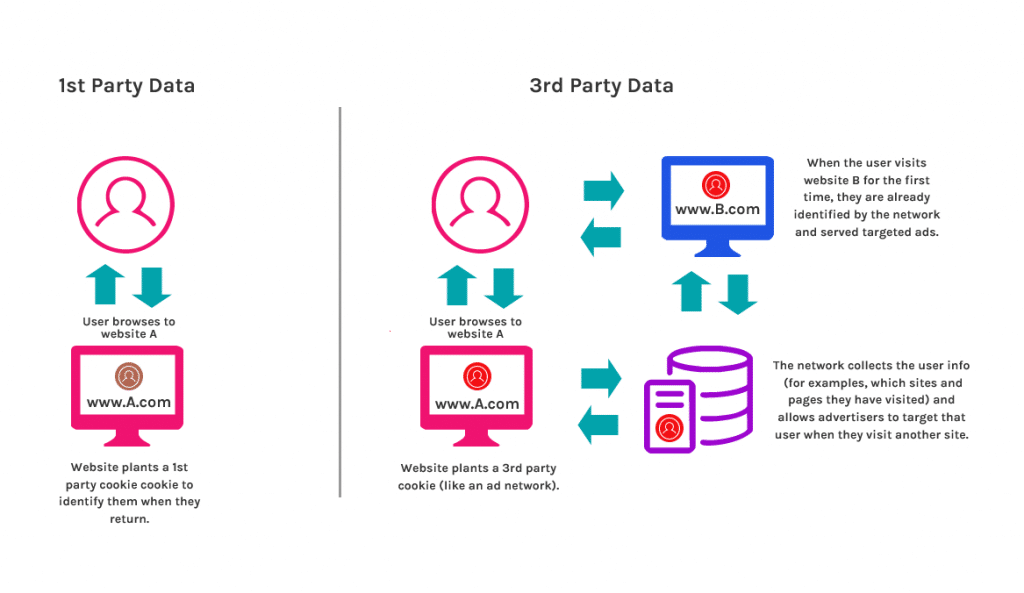The end of the party? How will Google’s 3rd Party Cookie policy change affect us marketers and content marketing analytics?

On January 14 Google announced that within 2 years they will remove the support of 3rd party cookies. This move comes as part of their efforts to advance privacy on the web. Following this release, we’ve been getting a flurry of questions, from partners and customers alike, about how this will affect our content marketing analytics and attribution capabilities and mapping customer journeys. Hence, wanted to address the topic in the following post and shed more light not only on what this change means for us but on the ecosystem as a whole:
What are 3rd Party Cookies?
Quick primer on cookies – Cookies are essentially small pieces of data sent by websites and stored on the user’s browser. They are used to identify the people visiting the site and remember certain details from their sessions (like items in shopping cart, names and addresses for autofill forms and viewing history to show personalized items). Cookies are divided into 2 main types: 1st and 3rd party cookies. 1st party cookies are used within the same website/domain. 3rd party cookies enable tracking and identifying users moving between websites. In light of their cross-domain ability, ad networks took advantage of this capability to offer more targeted and personalized ads to users browsing different sites. This also enabled the ad networks to build large databases of cookie data which they aggregated from publishers.

Who will this change affect the most?
With this change, Google is joining Apple (Safari) and Firefox that have already limited the use of 3rd party cookies in the past couple of years. The purpose of these changes is to limit the ability of networks and companies to aggregate and trade in users personal information. Since online advertising has been the main business model of the web, many agencies and networks now fear that their core assets of users data will soon vanish. However, Google softened the expected blow stating that they will enable some forms of limited tracking via what they call the Privacy Sandbox. This is to ensure that networks adhere to clear tracking guidelines that respect users’ privacy.
This technical change will not affect the 1st party cookies and tracking solutions, like TrenDemon, designed to help brands and marketers understand their own audiences behavior and uncover their content marketing ROI. It is worth noting that the collection of personal 1st party data is also being protected in recent years with relevant legislation such as GDPR and California Consumer Privacy Act (CCPA). These regulations ensure that users maintain control over the collection of their personal data and without allowing companies to trade in this personal information. For those users who opt in, marketers should offer a better experience, something which requires a deeper understanding of what their customers want and need.
What does this expected change mean for brand and enterprise marketers?
With lesser ability to rely on 3rd parties as data sources, brand and enterprise marketers will have to become more self-reliant and proactive in their approach to user data. The challenge in the coming years which marketers will need to overcome is how to offer their users better, more personalized experiences, in an environment which puts severe limitations on the collection of personal information. Marketing teams will need to build and master their own data platforms, to allow them to carry out effective marketing attribution, content analytics, personalization and intelligent, contextual marketing. It will be increasingly important for brands to create and own their digital content assets as a way to directly uncover not only the various touch points but also their audiences’ engagement points.
To get regular more updates by TrenDemon, news on the industry and data-driven insights, Sign up here
To learn more on how TrenDemon can help you leverage your 1st party data, transparently, effectively and in a sustainable way, feel free to reach out to us.